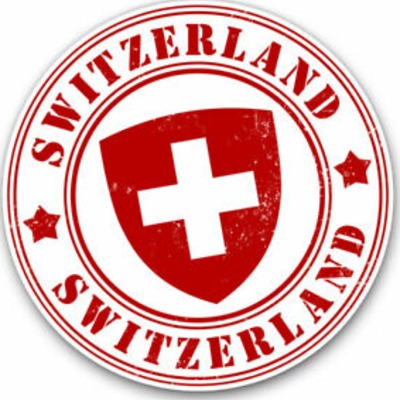Jungfrau Railway Group Increases Positive EBITDA In The First Half Of The Year

The Jungfrau Railway Group's first semester of 2021 shows some bright spots, but it was still characterized by the corona pandemic and the associated restrictions. In the first half of the year, 137,400 visitors traveled to the Jungfraujoch - Top of Europe. That is 36.6% more than during the same period last year, which was affected by the lockdown and the almost three-month closure of all tourist railways. The loss amounts to CHF 9.8 million (2020: loss of CHF 11.5 million). Again, the Jungfrau Railway Group succeeded in generating positive EBITDA despite the challenges of the corona pandemic. It amounts to CHF 10.5 million and is 77% higher than in the previous year. From today's perspective, the company assumes that positive EBITDA can also be expected for the full year 2021.
Despite the crisis, the company is solidly positioned and the level of self-financing is very high at 72.4% even after the V-Bahn project has been completed. It is still important to maintain the balance between an optimal use of resources and the strongly varying demand. The Jungfrau Railway Group therefore operated with short-term planning for both the deployment of employees and rolling stock. The Jungfrau Railway Group continues to use the instrument of short-time work. Despite the challenging situation, the Jungfrau Railway Group has always maintained a good and wide range of offers in the interests of the entire Jungfrau Region. This strategy will be pursued further.
Strongly fluctuating frequencies due to bad weather periods
The daily numbers of visitors to the Jungfraujoch - Top of Europe fluctuated strongly in the first half of the year. This was due to the often bad weather and the uncertain weather forecasts. The international guests, whose demand is significantly less dependent on the weather, remained largely absent due to the corona pandemic. In the first half of 2021, mainly Swiss people visited the Jungfraujoch. They benefited from various promotions coupled with the ski pass or multi-day passes for the railways in the region. A total of 137,400 guests traveled to the Jungfraujoch - Top of Europe. This corresponds to an increase of 36.6% compared to the previous year, when the Jungfraujoch - Top of Europe was closed for 83 days due to the lockdown.
High agility required - good winter season
In the Adventure Mountains, the Jungfrau Railway Group recorded net transport income of CHF 3.9 million, which corresponds to an increase of 9.2%. In this segment, too, the highly fluctuating, weather-dependent visitor numbers presented a major challenge.
Thanks to the opening of the V-Bahn, winter sports performed well compared to other regions in Switzerland. After a resinous start in January with bad weather and the cancellation of the Lauberhorn races, an upswing followed in February. Thanks to the good snow and weather conditions, the 2020/2021 winter sports season could in part be extended until April 25, 2021. The number of ski visits in the entire Jungfrau Ski Region (cooperation product in which the Jungfrau Railway Group has a stake of over 60%) fell by 5.2% to 706,000 ski visits compared to the previous year (2019/2020 season) . In the core area of Kleine Scheidegg-Männlichen, however, the number of ski visits was 457,900, which means there was an increase of 5.2% thanks to the new V-cableway.
It has been confirmed that the V-Bahn clearly means an increase in attractiveness for winter sports in the Jungfrau Ski Region, among other things with the strengthening of public transport and an average time gain of 47 minutes from Interlaken Ost to the ski slope. Without open restaurants and bars in the ski area, an important part of the winter sports experience was unfortunately missing for many visitors. This restriction in the area of gastronomy had a negative effect on the number of visitors and reduced the average length of stay of guests in the winter sports area.
Short-time work continues - dismantling work on the V-Bahn and renewal of the Mürrenbahn
Short-time working will continue to be an important instrument in 2021 to secure as many jobs as possible in the region. Thanks to the flexibility of the employees, it is possible to plan operation and deployment at short notice than before. Operating costs will continue to be kept low.
In the main strategic project, the V-Bahn, the completion and dismantling work will be completed by autumn 2021. Since there was still a lot of snow at the Eiger Glacier in spring, there were delays. The entire project billing takes place by the end of the year. Overall, a cost overrun of around 10% (namely project adjustments and difficult building conditions) compared to the original planning is expected. As a supplement to the V-Bahn, the Wengen shuttle will go into operation in 2023. With this investment in the future, the journey by train to car-free Wengen will be optimized again.
Work on the overall renovation of the Grütschalp-Mürren adhesion railway, including the Grütschalp, Winteregg and Mürren train stations, is on track. The first intensive phase for the renewal of the roadway was completed on June 4, 2021. Further stages will follow until the renewal is completed at the end of 2023 with the commissioning of the new rolling stock. This means that the provisions of the Equal Opportunities for People with Disabilities Act for public transport are implemented on time. The investments of around CHF 50 million in the renewal of the Lauterbrunnen-Mürren (BLM) mountain railway are guaranteed by the Canton of Bern.
outlook
How the corona situation develops in Europe and worldwide will be decisive for the course of business. For two months now, more and more tourists have been coming to Switzerland from the Gulf States and the USA. With increasing vaccination coverage of the population, travel behavior on global markets could normalize. For the Asian market in particular, the entry requirements must be more predictable again. Risks arise from the mutations in the virus.
Unfortunately, business did not develop as expected in the high season months of July and August. The unfavorable weather meant that around 110,000 guests visited the Jungfraujoch - Top of Europe (previous year 153,000). If the weather cooperates, you can expect numerous guests from Switzerland and neighboring countries in autumn. In addition, the first reservations from the Asian region were registered for the fourth quarter. However, that does not change the fact that a large proportion of the around 70% Asian guests are still missing on the Jungfraujoch. The Jungfrau Railway Group is convinced, however, that sticking to its long-term strategy with focus on international markets will pay off. The potential is great and is still being fueled by the V-Bahn generation project with the Eiger Express,
Confidence prevails when looking at the 2021/2022 winter season, after the last season was one of the best in recent years thanks to the V-Bahn in the Kleine Scheidegg-Männlichen area.
From today's perspective, the company assumes that there will be another loss for the full year 2021, but positive EBITDA can still be expected.













